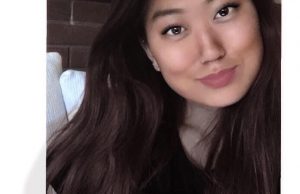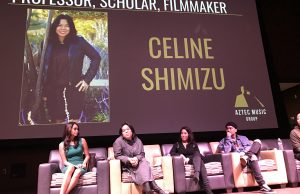Fearing the Knife
(Editors’ Note: The introduction to the series on #everydaysexualviolence is here. It contains a detailed trigger warning.)
Melanie Klein
My early childhood was idyllic in many respects – I spent my early years living with my parents and extended family on a large piece of property in Germany that had been in my family for nearly a hundred years situated in a village my family had inhabited for eons. The land had been farmed for generations and, at one point, we even had our own mill. Our family was well-known in the region and had a certain level of respect and status.
Despite the changes modernity brought with it, we still had crops and animals, including the pigs my great-uncle butchered for the family restaurant that sat at the front of the property and the rows of apple trees that were transformed into apfelsaft and apfelwein. We also had large deciduous trees that provided shade and shelter, allowing me to imagine I existed among the fairies and gnomes common to German lore and culture. As a young girl of three, I was free to roam far and wide on the family property since I could never go too far without being under the watchful eyes of one family member or another. This was normal and natural – there was nothing to fear in this small village, surrounded by those that loved and cherished me.
And in those moments of adventure, the sense of freedom creating a sense of expansiveness in my chest, I might find myself enjoying a flower or watching the clouds pass when, seemingly out of thin air, my great-uncle, the butcher, would appear from behind a door or around a corner holding a long knife and wearing a soiled apron, the remnants of our pigs.
“Gib mir Einen Kuss,” he’d demand waving the blade of knife subtly, sending a clear message.
I didn’t want to kiss this man. I felt scared to kiss this man. I didn’t know why I should be expected to kiss this man.
I can’t recall how these stand-offs would end. I imagine a relative or another would enter the picture and he would skulk away. I don’t know if they know how he had terrorized me because these run-ins, run-ins that may have only lasted from a few seconds to several minutes but that felt like ages, happened several times over a period of a few years and left me traumatized. Each time, he seemed to disappear as quietly and undetected to those that saved me, as he had appeared to me. I sometimes wonder if they knew the full extent of those encounters and how deeply scarring it was. After all, as a girl between the ages of 3 – 5, I wasn’t able to communicate my feelings. It was beyond my capabilities at the time, but those unspoken feelings settled deep into my being.
I do recall my mother telling me how angry my father had been to hear of my great-uncle’s threats and how he had verbally threatened him to stop. And I recall hearing family members talking about him as being silly, how his sense of humor was over-the-top at times, how we was nothing to really worry about. He would never really use his knife to steal a kiss from an innocent babe. After all, every family has a silly uncle, right?
As a teenager, I learned my great-uncle was the same man that told my mother not to say anything when a local hunter attacked her. She was walking home when he pulled her into the fields to rape her. When my mom freed herself and fled home, my great-uncle was the first person she ran into. Visibility shaken and tearful, she was told that the hunter was one of the best customers to dine at our family restaurant, a man who brought in dozens of his rowdy and raucous hunting buddies who liked to pound mugs of beer. They’d rack up huge bills thanks to their expensive drinking habit and calling him out on his attack would mean lost business. And that’s a valid concern, right?
While his attempts at playing the knife-wielding kissing bandit ended eventually, my fear of him never waned. I recall hiding behind my grandfather and hanging on to the back of his shirt as we’d walk past him on our way to visit my great-grandmother who lived in the apartment above the family restaurant. This continued well into my teen years.
These are the first violent incidents I can recall as a person born female, incidents that may have lacked physical violence but ones that were emotionally, mentally and spiritually abusive. And while these incidents were absent of physical violence, they threatened physical harm and could have easily ended up that way. These incidents framed my world view on what it meant to be a girl. Even then, I knew they occurred specifically because I was a girl.
Because these first incidents were so extreme, a grown man wielding a knife at a toddler, it made all of the mentally, emotionally and physically abusive experiences I witnessed and experienced directly later in life pale in comparison. It made all the misogynistic and sexist gender-based violence that was yet to come appear to be normal and expected.
From the everyday sexist images in the media culture that only grew more prolific and extreme once I moved to the United States to my ex-boyfriend’s emotional and physical abuse. From my ex-boyfriend’s jealousy and his threats of violence to being stalked and raped by him after I finally left him for good. From the catcalls and street harassment I have experienced since puberty to the time I was stalked for months by a colleague. From the old man who pulled me into his car and tried to rape me when I was a teenager to the dysfunctional and toxic relationships I endured because I thought they were normal. From blaming myself for my own victimization to maintaining silence and not reporting any of these accounts, those early run-ins with my great-uncle taught me that girls and women are things to be had, their affection and their bodies are things to be taken and that boys and men are entitled to these things.
#YesAllWomen #EverydaySexualViolence
__________________________________________________
Melanie Klein, M.A., is a writer, speaker and professor of Sociology and Women’s Studies specializing in society and culture, power and privilege, media literacy, body image and women’s history. She is a contributing author to 21st Century Yoga: Culture, Politics and Practice and is featured in Conversations with Modern Yogis. She is the co-editor of Yoga and Body Image: 25 Personal Stories About Beauty, Bravery + Loving Your Body, and co-founder of the Yoga and Body Image Coalition. Follow her @feministfatale.




0 comments